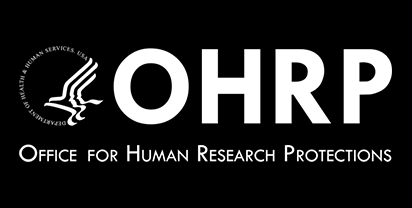Pres. Obama Orders Investigation of Guatamalan Syphilis Experiment
President Obama ordered a review by his bioethics commission following the revelations that yet another experiment sponsored by the U.S. Public Health Service, was even more odious than the infamous Tuskegee Syphilis experiment. In the recently uncovered experiment, unwitting Guatemalans were deliberately infected with syphilis by the same doctor who conducted the Tuskegee experiment.
Additionally, the President charged the commission additionally with examining whether federal regulations and international standards "adequately guard the health and well-being of participants in scientific studies supported by the Federal Government."
The seemingly unending stream of morally repugnant medical experiments seem to confirm the need to protect society from immoral medical cowboys.
Dr. Maurice Henry Papworth, a British medical ethicist, and author of a 1967 book, Human Guinea Pigs, in which he exposed the unethical dimensions of medical research by identifying 78 examples of unethical experiments conducted on patients who were at National Health Service hospitals in the UK.
His standard for conducting human research could restore the integrity of medical research:
"No experiment should be contemplated, proposed or undertaken which, if he were in circumstances identical to those of the intended subjects, the experimenter would even hesitate to submit himself, or members of his own family, or anybody for whom he had any respect or affection."
Posted by Vera Hassner Sharav
Nature
Obama orders review of Guatemala syphilis experiments
– November 24, 2010
 President Barack Obama today asked his bioethics commission to dig into the recent discovery that US government-funded scientists intentionally infected subjects with syphilis in a study in Guatemala in the 1940s.
President Barack Obama today asked his bioethics commission to dig into the recent discovery that US government-funded scientists intentionally infected subjects with syphilis in a study in Guatemala in the 1940s.
"The research was clearly unethical," Obama wrote in a memorandum to Amy Gutmann, the chair of the Presidential Commission for the Study of Bioethical Issues. "In light of this revelation, I want to be assured that current rules for research participants protect people from harm or unethical treatment, domestically as well as internationally."
While the Guatemala experiment is six decades old, the shift of many pharamceutical companies’ clinical trials overseas in recent years has brought under scrutiny the protection of human subjects in clinical trials outside of developed nations.
Obama asked the commission, which is just concluding a report on synthetic biology, to launch a panel in January charged with examining if federal regulations and international standards "adequately guard the health and well-being of participants in scientific studies supported by the Federal Government."
He also asked the commission to "oversee a thorough fact-finding investigation into the specifics of the U.S. Public Health Service Sexually Transmitted Diseases Inoculation Study."
That study first came to public attention last month when the US government apologized to the government of Guatemala, and the survivors and descendants of those infected in a National Institutes of Health-sponsored set of experiments conducted between 1946 and 1948. In that study, nearly 700 Guatemalan prisoners, soldiers and mental patients were intentionally infected with syphilis without their knowledge or consent, in an effort to test penicillin’s effectiveness against the disease. Additional experiments involved other sexually transmitted diseases.
The experiment was uncovered by Susan Reverby, a medical historian at Wellesley College in Massachusetts, who discovered records of it in the archives of the University of Pittsburgh. (Read Nature’s interview with Reverby). Her findings are to be published in the Journal of Policy History in January.
Obama instructed the commission to complete its work within nine months. He added that it should hold "at least one meeting" outside the country, enlist international experts, including experts from Guatemala, and report back to him with its findings and recommendations.

